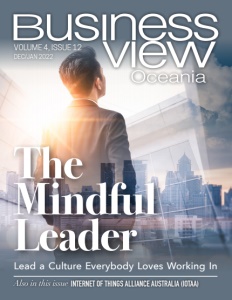Why is it that there is no shortage of leadership development materials, yet outstanding leadership is so rare? Despite having access to so many leadership principles, tools, systems, and processes, why is it so hard to develop and improve as a leader?
The answer is that the vast majority of leadership materials are based on what I call ‘horizontal development’ instead of vertical growth. Vertical growth involves both downward seeing and upward growth. We see downward (vertically) into our unconscious patterns of thought and behaviour and learn to deal with them with awareness, patience, and compassion. The more we do this, the more we increase our ability to grow upward in the direction of our values, aspirations, and ideals. Through vertical growth, we are able to train our mind to engage less in the reactive and programmed algorithms of our mind and body, and more in a deliberate and flexible set of behaviours based on our aspirations and values.
Vertical versus horizontal development
To get started on a journey of vertical growth, there are five key steps:
- Self-awareness: Self-awareness is the essential foundation for vertical growth, without which all the other steps are not possible.
- Fast brain, slow brain: The slow brain engages parts of the brain that enable us to act with intention and awareness before our fast-brain reflex response takes over. To shift from our fast to our slow brain, we need to have clear intentions and deliberately choose our values and responses, rather than being held hostage by habitual responses formed in our past.
- Find your vertical growth edge: We can become comfortable in patterns that don’t serve us. So, in order to grow again, we first must disrupt our sense of order and move outside of our comfort zone to build a new, more functional order.
- Be values-driven: When values are applied with self-regulation and internal honesty, they are living, breathing forces that direct our behaviour for our own happiness and that of others. Are your values a living practice? What practices do you use and what actions do you take daily to align with what you stand for? If you need to think about it, then it’s probably not operational in your life.
- Commit to daily action: It’s pointless to choose values without a daily commitment to deliberately cultivating that value in action. It’s the daily commitment that gives you the opportunity to notice your habitual fast brain patterns, then to engage the slow brain by consciously regulating out of those patterns into a more values congruent, self-aware state.
About Michael Bunting
Michael Bunting is a best-selling author and leadership expert who has worked with global brands such as Qantas, Novartis, HSBC. His new book, Vertical Growth: How self-awareness transforms leaders and organisations, is available at: https://themindfulleader.com/vertical-growth-book/



 This information will never be shared to third parties
This information will never be shared to third parties